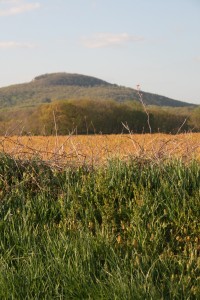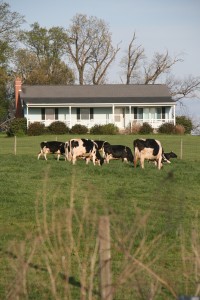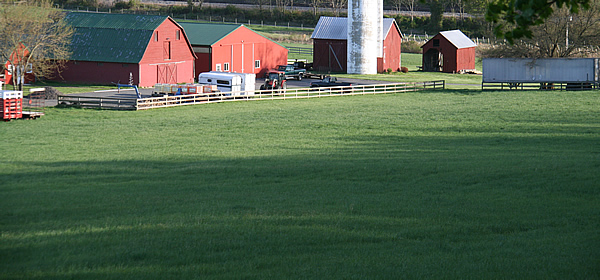
“Farming at Metro’s Edge”
Leaders from farm, education, environmental, non-profit and government organizations recently called for a collaborative effort to improve farm profitability, environmental regulations, and local food production and consumption systems. Their comments came in response a report titled “Farming at Metro’s Edge” issued at a briefing held at the Universities of Shady Grove.
 The “Farming at Metro’s Edge” report addressed questions on the state of agriculture in the area.
The “Farming at Metro’s Edge” report addressed questions on the state of agriculture in the area.
- Will professional farmers survive without proper compensation?
- Should local governments spend more on the “incubator farm” program to train prospective farmers?
- How can regulations be modified to achieve results while recognizing the “on the ground realities” of different farming operations?
- How to assist and encourage new farmers to purchase and develop farms?
Montgomery Council Vice-President Craig Rice told the more than 65 people attending the presentation at the Universities at Shady Grove that he would ask the Montgomery Council to consider the report’s recommendations, which were developed by over 200 farmers, environmentalists, civic and nonprofit leaders, community members, and government officials in the two-day conference held last January at USG.
 Rice said consideration should be given to creation of a farming magnet program in area schools and establishing a farm business navigator program (modeled after the existing Small Business Navigator) to assist farmers in growing this important segment of the economy. William Schlossenberg, representing the Universities at Shady Grove, offered his institution’s services as convener of groups working to further conference recommendations. Sara Ducey, Montgomery College reported that Montgomery College faculty, recognizing that local food as a rallying point were developing a Sustainable Food Production Certificate program to help prepare future producers. Frederick County Commissioner David Gray said he hoped for new interest in farmland preservation in the face of urban growth in Frederick County. Mike Knapp, a consultant for the Town of Poolesville, reported that the town, located in the Montgomery County Agricultural Reserve was developing plans to become a food hub that could serve farmers and consumers, including major institutions and restaurants interested in increasing use of locally produced food.
Rice said consideration should be given to creation of a farming magnet program in area schools and establishing a farm business navigator program (modeled after the existing Small Business Navigator) to assist farmers in growing this important segment of the economy. William Schlossenberg, representing the Universities at Shady Grove, offered his institution’s services as convener of groups working to further conference recommendations. Sara Ducey, Montgomery College reported that Montgomery College faculty, recognizing that local food as a rallying point were developing a Sustainable Food Production Certificate program to help prepare future producers. Frederick County Commissioner David Gray said he hoped for new interest in farmland preservation in the face of urban growth in Frederick County. Mike Knapp, a consultant for the Town of Poolesville, reported that the town, located in the Montgomery County Agricultural Reserve was developing plans to become a food hub that could serve farmers and consumers, including major institutions and restaurants interested in increasing use of locally produced food.
 Three themes emerged from the conference discussions according to the report: securing the profitability of farming, environmental regulations and their effect on farming, and collaboration between farmers and the non-farming public.
Three themes emerged from the conference discussions according to the report: securing the profitability of farming, environmental regulations and their effect on farming, and collaboration between farmers and the non-farming public.
View the “Farming at Metro’s Edge” report here.
Conference participants expressed strong support for strengthening technical and business assistance through the University of Maryland Cooperative Extension and Natural Resources Conservation Services and county agricultural support agencies and higher education institutions in the region; educational programs for the non-farming and consuming public, especially youth; strengthening farmland preservation programs; and reviewing zoning and other regulations to prevent unintended economic impacts on farming.
The major environmental issue identified by the conference was the need for flexibility in the implementation of regulations to respond to the varying environmental impacts of different kinds of farming, and the importance of protecting large contiguous areas of farmland.

The majority of conference participants strongly supported collaboration of farming and non-agricultural groups to improve marketing of local farm products to consumers. Celeste James, Kaiser-Permante Healthy Eating and Active Living Initiative, said local foundations were increasingly active and interested in supporting local healthy food systems and the infrastructure to strengthen and sustain them.

Engage us on Facebook
Follow us on Twitter
Tweets by @mymcmedia